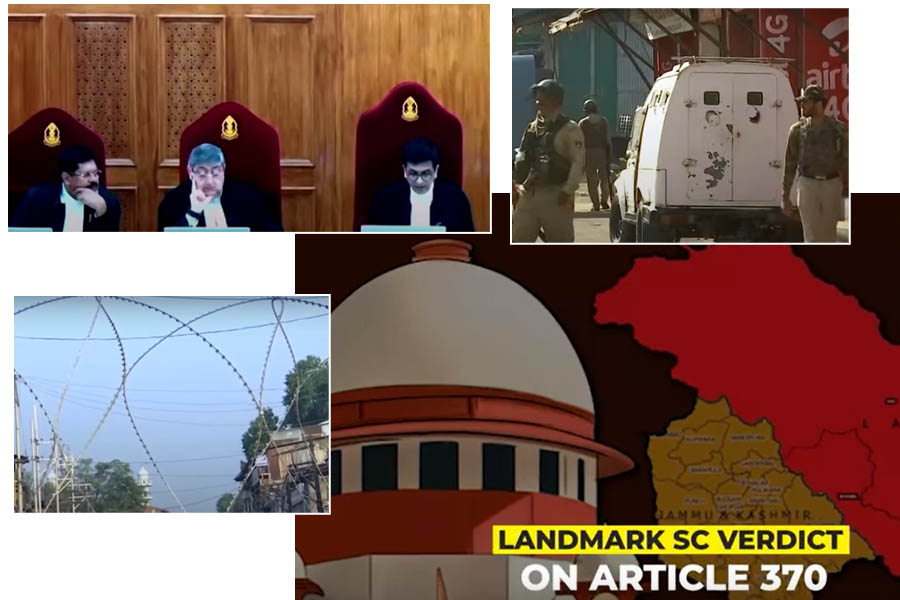
In a surprising turn of events, India's Supreme Court delivered a unanimous verdict on December 11th, endorsing Prime Minister Narendra Modi's controversial decision to revoke Article 370 of the constitution, which granted special status to the region of Jammu & Kashmir. The move, celebrated by Modi on social media, marked a significant blow to the autonomy of the region and raised questions about the judiciary's independence from the influential Modi government.
Background of Modi's Power Play:
The revocation of Article 370 in August 2019 was a pivotal moment in Modi's Hindu-nationalist agenda. The move involved scrapping the semi-autonomous status of Jammu & Kashmir, India's only Muslim-majority state, and dividing it into two "union territories" directly governed from Delhi. The decision was met with strong opposition from many Kashmiris and was carried out in an authoritarian manner, including cutting communication lines and placing political leaders under house arrest.
Supreme Court's Unprecedented Endorsement:
While the Supreme Court's alignment with the government's decision was somewhat expected, the extent of the endorsement of Modi's methods was surprising. The court ruled that Jammu & Kashmir, like other princely states integrated into India in 1947, had not retained intrinsic sovereignty. It justified Article 370 as a temporary provision for wartime situations, with the ultimate goal of integrating the region into the rest of India.
Lack of Commentary on Authoritarian Tactics:
Notably, the judges refrained from commenting on the authoritarian nature of the power grab. Instead, they directed the government to restore statehood (excluding special status) to one of the territories, Jammu and Kashmir, at the earliest, with elections mandated by September. The court suggested the possibility of a "truth and reconciliation commission" to examine abuses in the region since the late 1980s, though no specific framework was provided.
Implications for Kashmir and Beyond:
The verdict, surprisingly met with minimal public protest in Kashmir, is likely to deepen the long-standing disaffection among Kashmiris. It also sends ominous signals to other states attempting to resist Modi's centralizing efforts, particularly the eight states in northeastern India that enjoy a degree of autonomy.
Challenges to Judicial Independence:
The court's rebuke of the petitioners for challenging the central government during President's rule raises concerns about the judiciary's independence. The verdict suggests a diminishing appetite within the Supreme Court to resist Modi's policies, leaving a looming question about the court's role as a check on executive power.
As India heads towards a crucial election expected to secure Modi a third term, the Prime Minister's increasing authoritarian tendencies and the Supreme Court's seemingly subdued resistance raise critical questions about the country's democratic principles. The decision on Jammu & Kashmir not only marks a significant loss of autonomy for the region but also reflects the broader challenges faced by India's judiciary in maintaining its independence amid shifting political dynamics.